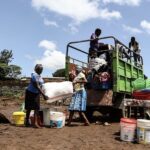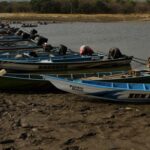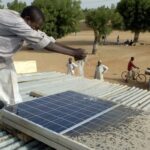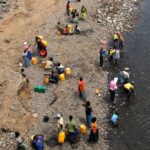Posts tagged with 'agriculture'
In Kenya and throughout east Africa, flooding this past April and May wreaked havoc, leaving a path of deadly destruction. The unprecedented deluge of heavy rainfall resulted in a catastrophe that many in Kenya have never witnessed. According to a June ...

Amazonian cities are diverse in opportunities and needs. The region’s biodiversity is among the world’s most important, but its cities’ sustainability challenges are less well-known. These jurisdictions require financial support and capacity building to create sustainable, conservation-oriented, equitable, urban green ...

Over the past several months, the climate pattern El Niño has disrupted different regions and sectors across the world. Zimbabwe recently declared a state of disaster, due largely to El Niño-induced drought. The city government in Bogotá, Colombia, announced water rationing as reservoir levels ...

By early 2025, countries are due to unveil new national climate commitments under the Paris Agreement, known as nationally determined contributions (NDCs). These commitments form the foundation of international climate action, establishing emissions-reduction targets and other measures that countries promise ...

If a picture can tell a whole story, then the image below of an intersection in Dar es Salaam, Tanzania, shows the past, present and future of global transformation in the transport sector. During Transforming Transportation 2024, which focused on ...

Last year shattered global heat records. The world witnessed the effects of rising temperatures in the form of devastating wildfires, severe flooding, extreme heatwaves and more. Poor countries and communities who have contributed the least to causing the climate crisis ...

With over half of the world’s population living in cities, urban spaces not only house us but offer opportunities for collective work and learning while serving as sources of creativity, inspiration and hope. Nevertheless, cities also account for a staggering ...

The issue of Delhi’s poor air quality resurfaces periodically in public consciousness. It garners attention on social media, in newspapers and in scientific studies, largely during winter months. During this period, Delhi’s air quality index drops from “poor” to “severe” ...

Residents of Jakarta, Indonesia woke up on August 31, 2023, to a thick blanket of haze and news that their city was again ranked the most polluted in the world — one of many times during the last several months when air quality became ...

By Sophie Boehm, Clea Schumer, Emma Grier, Louise Jeffery, Judit Hecke, Joel Jaeger, Claire Fyson, Kelly Levin, Anna Nilsson, Stephen Naimoli, Joe Thwaites, Katie Lebling, Richard Waite, Jason Collis, Michelle Sims, Neelam Singh, William Lamb, Sebastian Castellanos, Anderson Lee, Marie-Charlotte Geffray, Raychel Santo, Mulubrhan Balehegn, Michael Petroni and Maeve Masterson on November 20, 2023
Today’s climate change headlines often seem at odds with each other. One day, it’s catastrophic wildfires wreaking havoc around the world; the next, it’s an optimistic piece on the rapid scale-up of solar and wind power. Taken together, such stories ...

Earlier this year, India surpassed China to become the most populous country in the world. And with 68% of the world’s population projected to live in urban areas by 2050, India is expected to see an additional 416 million urban dwellers. ...

New data from WRI’s Aqueduct Water Risk Atlas show that 25 countries — housing one-quarter of the global population — face extremely high water stress each year, regularly using up almost their entire available water supply. And at least 50% of the ...

Over the past two decades, Rwanda – the land of a thousand hills – has made remarkable strides: poverty has significantly declined and quality of life has improved. The service, industrial and agricultural sectors have flourished. Even in the aftermath ...

Let’s not forget what we learned during 2020 about the fragility of our food supply chains: the prevailing, globalized model is as fragile as a spider web. It can shatter into dangling threads in times of crisis, such as a pandemic ...

Countries agreed to limit global warming to well below 2 degrees C (3.6 degrees F) and ideally 1.5 degrees C (2.7 degrees F) as part of the 2015 Paris Agreement. The latest science shows that emissions will need to drop ...


























